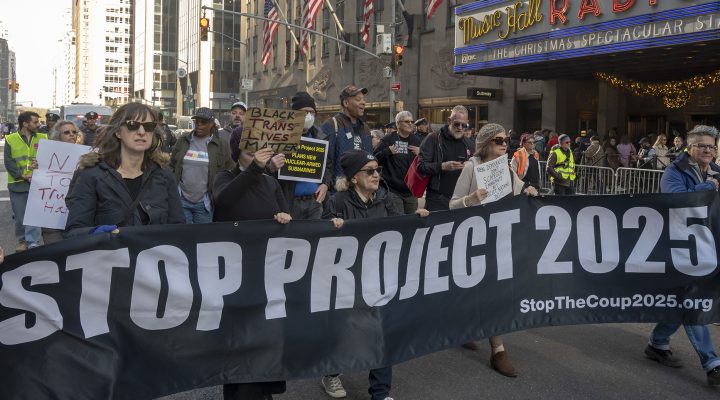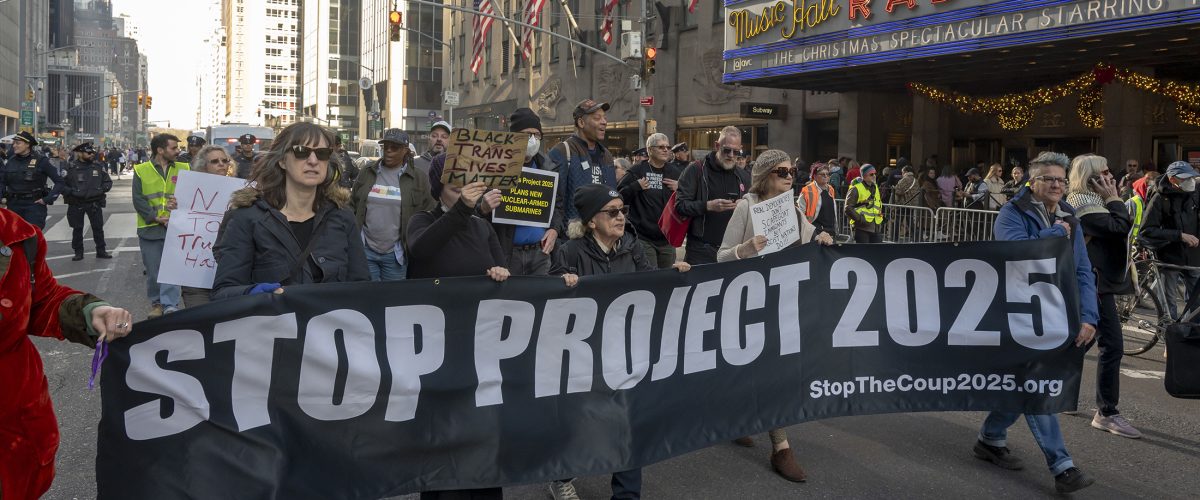“And so it begins.”
As nominations for leadership of government agencies are announced by the newly elected American president, the words of Lutheran theologian Dietrich Bonhoeffer, written around Christmas 1942, seem startlingly relevant:
We have been silent witnesses of evil deeds; we have been drenched by many storms; we have learnt the arts of equivocation and pretense; experience has made us suspicious of others and kept us from being truthful and open; intolerable conflicts have worn us down and even made us cynical. Are we still of any use?
Responding to his own question, Bonhoeffer concluded:

Bill Leonard
What we shall need is not geniuses, or cynics, or misanthropes, or clever tacticians, but plain, honest, straightforward men (and women). Will inward power of resistance be strong enough, and our honesty with ourselves remorseless enough, for us to find our way back to simplicity and straightforwardness?
By April 1945, Bonhoeffer was dead, executed in a Third Reich prison at war’s end.
In November 2024, his question became my own: “Are we still of any use?” Listening to pundits on both sides of America’s newest religio-political wall, the answers seemed to be overwhelmingly in the negative.
But then I heard an interview with Eddie Glaude, Princeton University African American Studies professor who, although never referencing God or gospel, carried me there with insight, brutal honesty and, like Bonhoeffer, a call for radical self-reflection:
We’re on the eve of 250 years, and the contradiction that has threatened to overwhelm the country from the beginning is in full view. What I think is fascinating is that all the ways in which we try to account for what has happened, what happened on Tuesday, none of which seems to account for why the people who are catching hell, the economy, issues with the incumbent, why would they then choose someone who trades in such hate, why would they scapegoat, why would it become such vitriol is released into the public, into the political system.
Glaude noted the critics could be right in their assessment of why the election was lost:
But they’re not accounting for why then are people choosing to hate. Why such ugliness as an outcome? And that requires a reckoning of who we’ve been, our past, and who we are. … And now we want to look to the future, no, no, no, we need to look in the mirror. We need to understand that 73 million people voted for this guy, THIS guy, and now American democracy is in jeopardy, fundamentally. And what motivated that vote? He played to grievance … hatred … fear … selfishness, and he played to greed. And we have to decide if that’s us.
Eddie Glaude’s call “to decide if that’s us” is an audacious and authentic response to Bonhoeffer’s question: “Are we still of any use?”
Indeed we are, as those who must commit ourselves to confronting grievance, hatred, fear, selfishness, greed and other deadly sins that so easily beset us at either end of the political and theological spectrum.
With that in mind, and amid nominations for powerful government agencies, we should not overlook a small segment of the Republican platform, recently highlighted on the campaign trail by the now president-elect. Near the end of the 5,000-word statement, a section on “religious liberty” promises a “new federal task force on Fighting Anti-Christian Bias,” aimed at “investigating all forms of illegal discrimination, harassment and persecution against Christians in America.”
Should that proposal be actualized, as it surely will, and in light of the belligerent, often unfounded claims about such bias, I fear we could be heading for an inquisition of sorts targeting Christian and non-Christian groups that do not subscribe to Christian nationalist perspectives now undergirding the current administration. Word & Way editor Brian Kaylor has frequently referenced the violent language of certain Christian nationalist preachers against their perceived “enemies.”
“When the gospel of grace becomes a gospel of retribution, inquisition is inevitable.”
When the gospel of grace becomes a gospel of retribution, inquisition is inevitable. The vitriol toward and often among religious groups in the country already is at fever pitch. Would this become a vehicle for promoting if not imposing certain establishmentarian Christian nationalist goals?
Then it dawned on me. What if such a task force actually determined, for example, that disinformation — aka lying — is an anti-Christian bias? Such a discovery might go a long way toward restoring credibility for all American Christians, left or right of center.
Washington Post columnist Jennifer Rubin writes: “Whether you believe that Americans embraced President-elect Donald Trump’s misogynistic, racist and bullying persona because they misunderstood what he stood for or because they liked what he stood for; or because they believed (falsely) that the economy was in a recession or because they could not afford to buy their own home; or because of some combination of all of these, we cannot ignore the success of the rightwing media’s disinformation network in shaping how millions of Americans view the country.”
The toleration of lies by biblical inerrantist evangelicals makes their theology particularly vulnerable given their commitment to living in spiritual and moral conformity to the inerrant word of God. The Preface to the Chicago Statement on Biblical Inerrancy (1978) clearly states:
The authority of Scripture is a key issue for the Christian Church in this and every age. Those who profess faith in Jesus Christ as Lord and Savior are called to show the reality of their discipleship by humbly and faithfully obeying God’s written Word. To stray from Scripture in faith or conduct is disloyalty to our Master. Recognition of the total truth and trustworthiness of Holy Scripture is essential to a full grasp and adequate confession of its authority.
“MAGA inerrantists cannot have it both ways.”
To live outside that confession, therefore, is to practice anti-Christian bias.
MAGA inerrantists cannot have it both ways, demanding strenuous adherence to Scripture’s “total truth and trustworthiness” and seeking to extend its application to American laws while ignoring or winking at the ceaseless prevarication of their chosen and, for them, “divinely appointed” leader. Or, like the Supreme Court, they could add a codicil to the Chicago Statement exempting him from bearing “false witness,” which they’ve essentially done already.
So, when Bonhoeffer asks, “Are we still of any use?” we answer, “Hell, yes! (Speaking theologically, of course; trusting God for the “inward power of resistance” and “honesty with ourselves.”)
Sojourner Truth, the ex-slave abolitionist, said it best when confronted by a man who argued: “Old woman, do you think your talk of slavery does any good? Do you suppose people care what you say? Why, I don’t care any more for your talk than I do the bite of a flee.”
“Perhaps not,” Sojourner Truth replied, “but God willing, I’ll keep you scratching.”
Let’s get to it.
Bill Leonard is founding dean and the James and Marilyn Dunn professor of Baptist studies and church history emeritus at Wake Forest University School of Divinity in Winston-Salem, N.C. He is the author or editor of 25 books. A native Texan, he lives in Winston-Salem with his wife, Candyce, and their daughter, Stephanie.
Related articles:
Improvising Grace: Reformation and dissent | Opinion by Bill Leonard
The slippery slope of unchallenged lies | Opinion by Mark Wingfield


